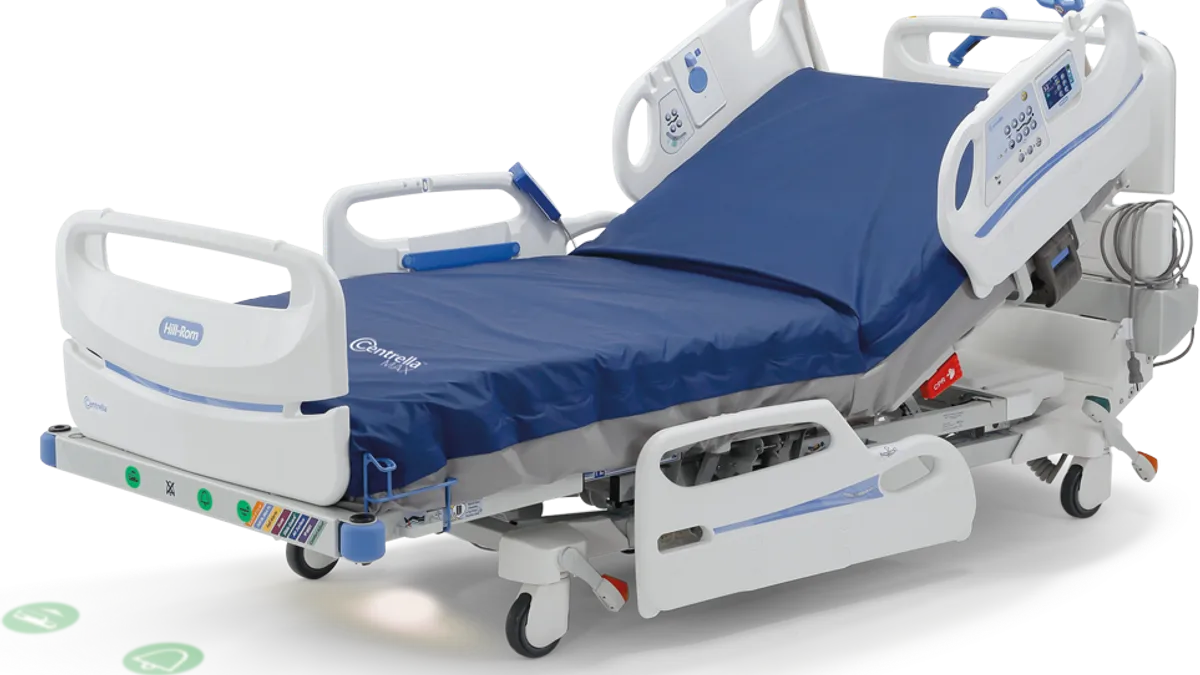Dive Brief:
- Chicago-based medical products manufacturer Hill-Rom Holdings is launching a new generation of hospital beds equipped with heart and respiratory rate sensors.
- Using EarlySense technology, Centrella Smart+ Beds continuously monitor patients' vital signs and alerts nurses if a change is detected.
- EarlySense has been shown to help lower "code blue"-related mortality by 83% and cardiac arrests by 86%, according to Hill-Rom's Monday announcement. Users have also reported reductions in hospital stays, ICU days and early detection of sepsis.
Dive Insight:
Despite interest in smart room technologies, U.S. hospitals have been slow to adopt them, largely due to lack of capital or infrastructure. Interoperability challenges also remain, as well as security and other concerns around health IT and connected devices.
A few providers have given the tech a try, however. When 131-bed Martin Luther King Jr. Community Hospital opened in Los Angeles in 2015, it offered smart beds that track patients' movements and interactive systems for patients.
Thomas Jefferson University Hospitals in Philadelphia partnered with IBM Watson Internet of Things to create "cognitive hospital rooms" that give patients more control of their surroundings and prompt actions such as getting up and walking periodically.
In June, NYU Langone Health announced new inpatient facilities with digital enhancements including MyWall, which lets patients manage daily needs, and an intelligent call system to keep nurses connected with patients, cutting down on response times and errors.
Hill-Rom's new beds aim to improve outcomes by catching warning signs that a patient's health may be deteriorating.
"EarlySense has been used to effectively monitor close to a million patients, positively affecting outcomes," Hill-Rom CEO John Groetelaars said in a statement. "By integrating the EarlySense technology into our Centrella beds, we are ushering in a new era in quality of care, whereby all patients can be continuously monitored throughout their entire hospital stay."
EarlySense's FDA-cleared technology leverages artificial intelligence and data analytics to help guide decisions about patient care and improve outcomes. The company is based in Ramat Gan, Israel, and Woburn, Massachusetts.












